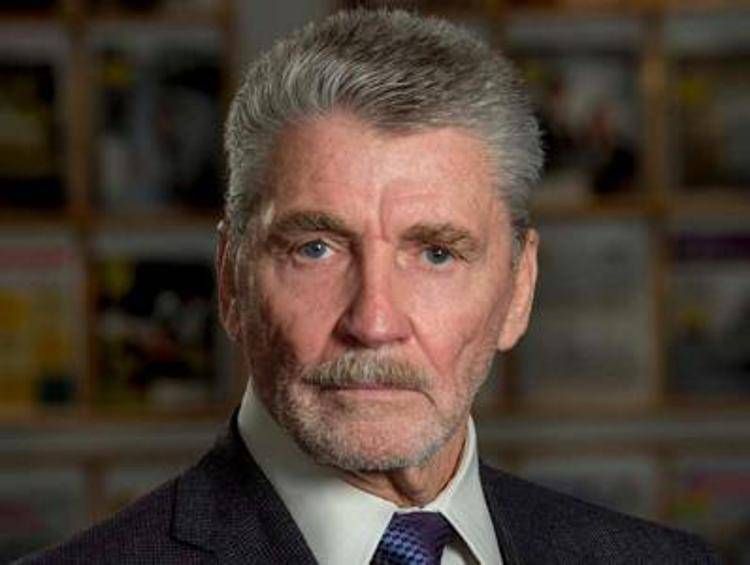

The US expects Italy to confirm its continuing support for Ukraine, although in our "turbulent" times, "consensus on policies is fragile and ephemeral", Brian Jenkins, an analyst for the conservative Rand Corporation think-tank, told Adnkronos.
Jenkins made the remarks in an interview to Adnkronos on Italian foreign policy, especially in North Africa and the Sahel, with a focus on Russia's role on the African continent, where Moscow is wielding growing influence through the Wagner Group network of mercenaries.
"I try not to insert myself into the policies and politics of other nations. Italy is a member of the European Union and the NATO alliance and has supported the positions adopted by these organisations, in particular, with regard to the war in Ukraine," Jenkins stated.
"I expect that will remain the case," stated, while acknowledging that there are politicians in Italy who oppose the war or are openly pro-Russian.
"Italy, like other European countries - and certainly like the US - is deeply divided politically, especially on the war in Ukraine," he said.
In the US, opposition to continuing support for Ukraine in the conflict with Russia comes mostly from the right, but exists at both ends of the political spectrum, Jenkins noted.
"I suspect that may be true for Italy as well. Some opponents declare themselves to be anti-war, others are avowedly pro-Russian. In today’s turbulent politics, any consensus on policy is fragile and ephemeral," Jenkins underlined.
Jenkins, an expert on terrorism, turned to Russia's role and objectives Africa, which he argues are linked to western sanction imposed over its invasion of Ukraine on 24 February last year and annexation of Crimea in 2014.
"Moscow has multiple objectives in Africa. As part of its efforts to re-assert its status as world power, Russia wants to displace Western influence in the region," Jenkins said.
"By ensuring the diplomatic support of African countries, Russia can reduce its diplomatic isolation and global support for sanctions," he continued.
"This has been especially important since Western sanctions were imposed on Russia following its occupation and annexation of Crimea in 2014, and a priority given the additional sanctions imposed after its invasion of Ukraine in 2022."
Access to Africa's natural resources - notably gold, diamonds and uranium - is therefore important for Russia, Jenkins underlined.
"These also serve the commercial goals of the Wagner Group, which not only provides mercenaries to African governments and Moscow’s proxies, but receives payment in mining concessions and other commercial contracts," he said.
In this way, Russia can achieve its objectives without making a major investment, while continuing to deny its presence in the continent, Jenkins argued.
Russia is also looking for "access to ports and air bases along the southern Mediterranean coast, which will enable the Russian navy to counter NATO's naval dominance," Jenkins said.
Libya is therefore strategic, and Russia has backed military strongman Khalifa Haftar, which he uses to control the oilfields in the east and to block oil exports to increase pressure on Europe and prevent a solution to the crisis, according to Jenkins.
"Hafter gained control of much of eastern and southern Libya with the help of Wagner's mercenaries. They have tanks and fighter aircraft. His positions are protected by Russian-made high-altitude air defence systems," he said.
"The presence of the Wagner Group enables Haftar to ignore any UN settlement of the conflict," Jenkins stated.
Libya's former colonial master, Italy belongs to a coalition of West African and European allies fighting jihadi militants and seeking to foster development in the Sahel, but its influence in the region has been hampered by military coups, he said.
"Italy is a member of the Sahel Alliance and a major participant in the EU's (now disbanded military) Takuba Task Force," Jenkins pointed out.
"European Involvement in the Sahel, however, is hindered by the military coups, which have brought to power governments less concerned about human rights in their efforts to deal with jihadist insurgencies and other internal threats," said Jenkins.
"The cruel advantage that the Wagner forces have in the area is that they are unconstrained in their behaviour and relationships."
Rome's relationship with North Africa dates back over 2,000 years to the Punic wars, "when Carthage was strategic threat and a source of great fear," Jenkins recalled.
"Today Italy fears waves of undocumented immigrants from Africa," Jenkins said.